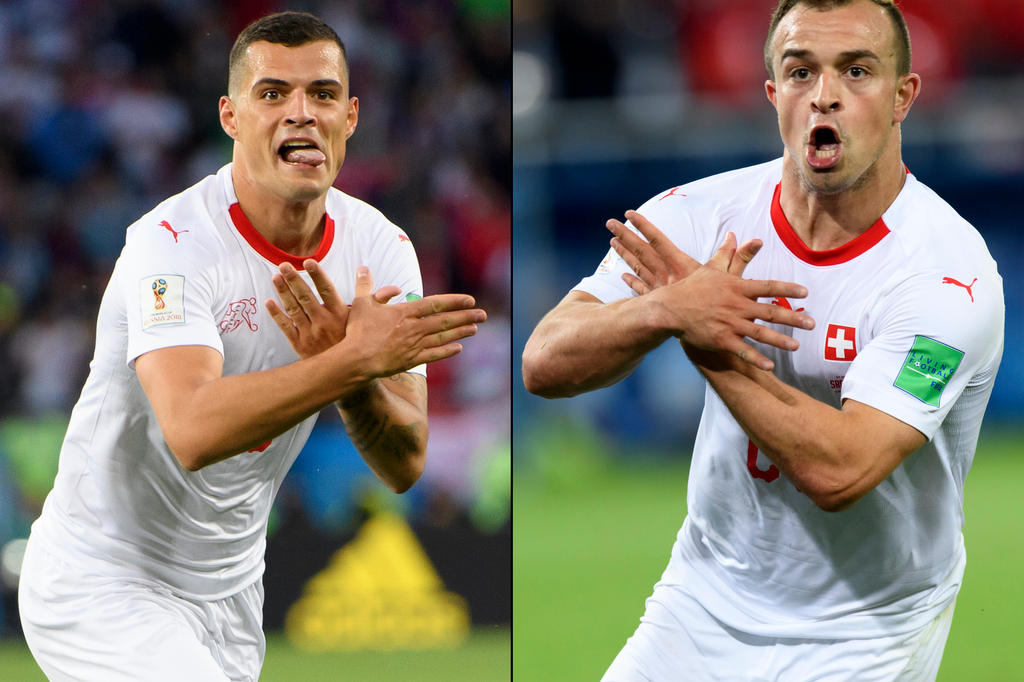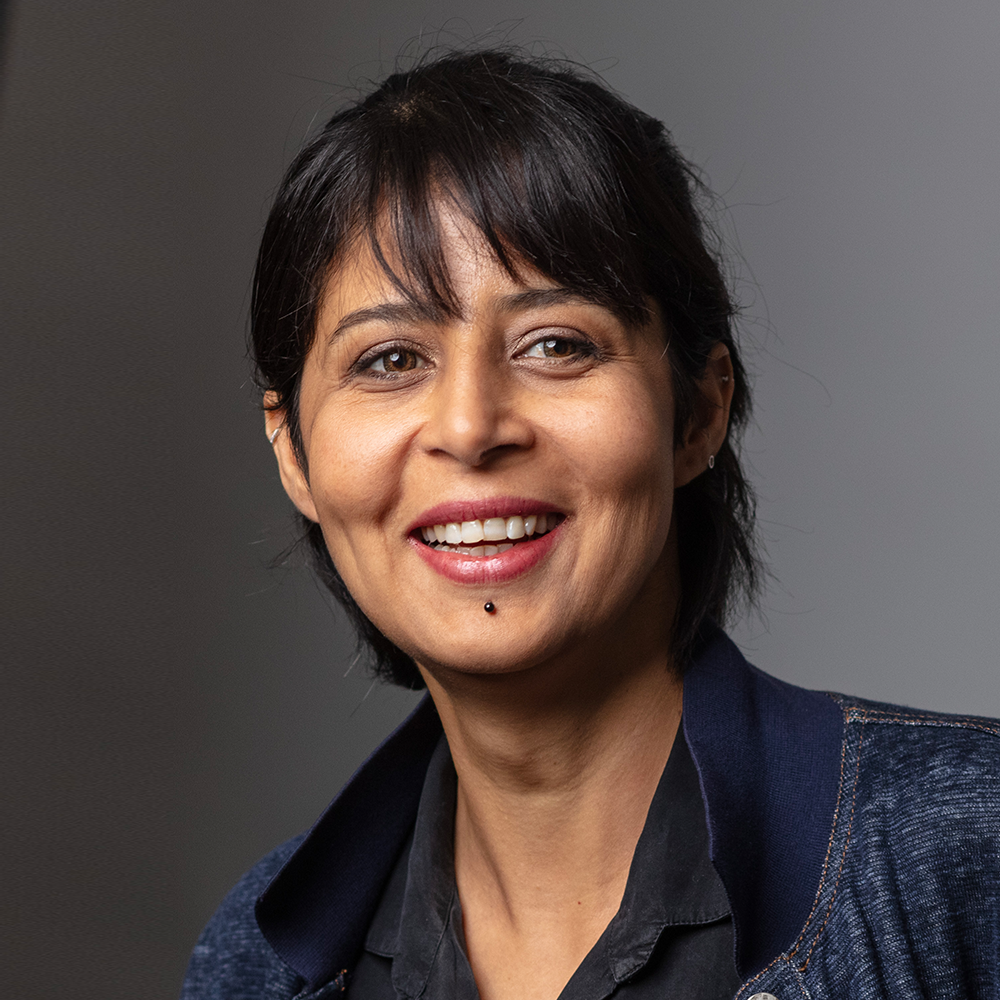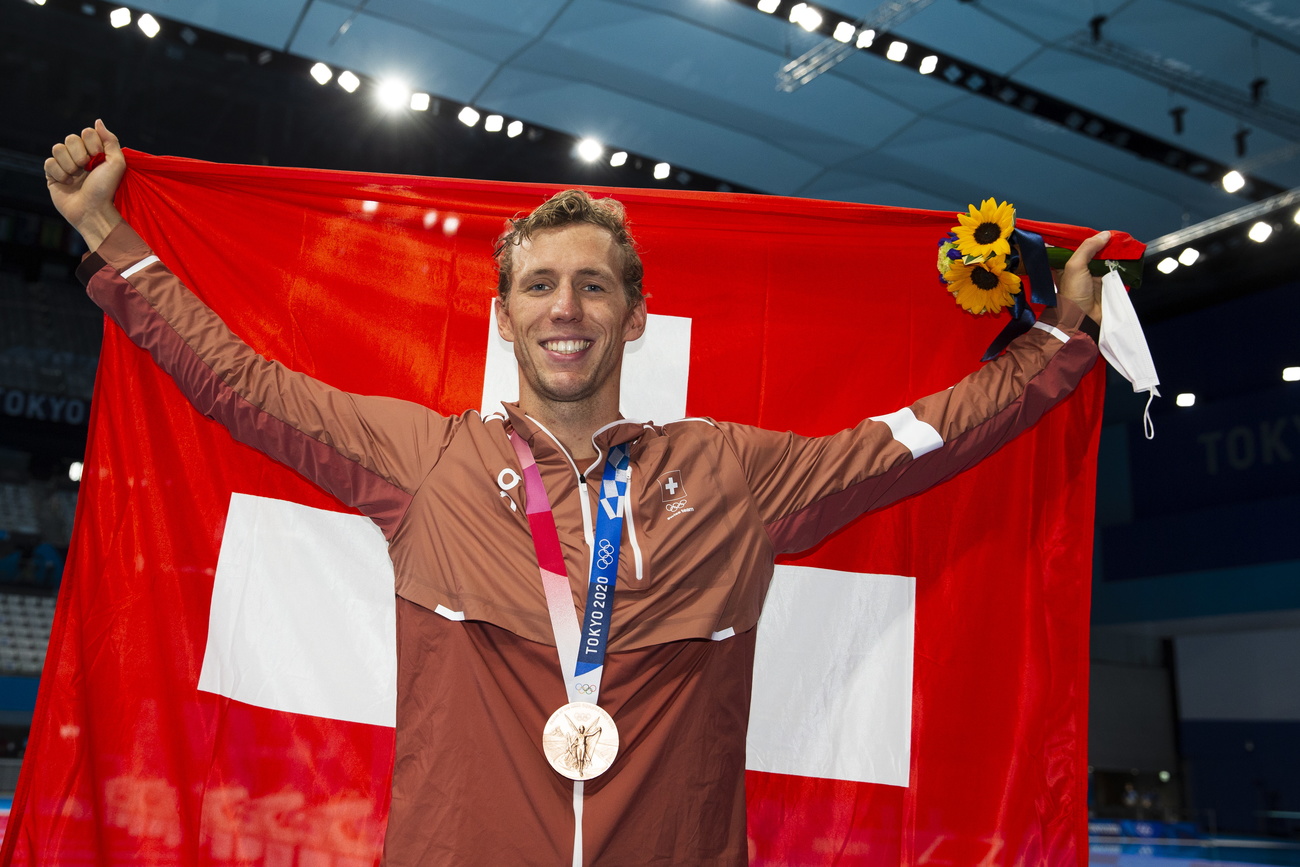Athletes are speaking up, but are the Olympics listening?

More athletes are speaking out about rules and norms governing what they can do, say, earn and wear in and out of the Olympic arena. But there is still a way to go before they have an equal say in decisions affecting them.
Few television viewers likely noticed that the German field hockey captain Nike Lorenz wore a rainbow-coloured band on her socks at the Tokyo Olympics. But the symbol of support for LGBTQ communities was a big deal in the Olympic arena. Rule 50 of the Olympic Charter bans any kind of demonstration and “political propaganda” on clothing or in sports arenas during the Games.
After criticism from some athletes and groups like the World Players Association that this violated athletes’ freedom of expression, the Lausanne-based International Olympic Committee (IOC) relaxed the Rule, allowing athletes to demonstrate at specific times and in certain areas. Lorenz also received the green light to wear the rainbow socks.

More
Swiss footballers fined by FIFA for Albanian double-eagle gesture
The adjustment of the rule amid the outcry from athletes – including from Tommie Smith and John Carlos, whose raised fists on the podium at the 1968 Mexico Olympics became a symbol of protest – is part of a larger movement for athletes to have more say in decisions in world sports bodies.
More athletes are speaking out against rules or norms they find unfair, but despite some successes, athletes have faced huge hurdles to getting their voices heard.
“There is a view that athletes are doing this only for the love of the sport, which may be true for some sports. But there has been a huge change in the way athletes view themselves,” said Oliver Liang, who heads the Public and Private Services Unit at the International Labour Organisation (ILO). He told SWI swissinfo.ch that the reluctance to deal with labour relations stems from differing views of amateurism and the fact that most athletes are classified as independent contractors.
“Most athletes are not employees, but they are still workers from a rights perspective. Their entire livelihood depends on someone telling them what to do and where to be at a certain time,” he said.
Power imbalance
At the source of the problem, says Brendan Schwab, who heads the World Players Association, is the power imbalance between athletes and the people in power in sports.
The IOC, world football’s governing body FIFA and other sports governing bodies hold huge power – they can disqualify or ban an athlete completely from the sport. Athletes, therefore, risk not being able to participate in their sport at all when speaking out about rules or practices they find unjust. Some athletes also fear for their personal safety if they criticise governments or national sports bodies that have a tight grip on what athletes do.
“We’re starting to understand that this hierarchical system is a harmful system and that it needs to be addressed by giving athletes a genuine voice and an equal say in the way in which sports are governed,” Schwab said. The imbalance has become more pronounced as money has poured into the sports world in the past few decades.

More
Olympic Games: when the dream becomes a nightmare
The stifling effect of this power imbalance is something the World Players Association has been trying to rectify. When it was set up in 2014 in the Swiss city of Nyon, many of its members from football, rugby and other professional sports unions found that there were many critical decisions being made at global sports tables that had a huge impact on athletes but didn’t involve them in the decision-making process. This ranged from issues with the Olympic Charter, which were included in player contracts, to aspects of the World Anti-Doping Code and the Court of Arbitration in Sport that players have found unjust.
These aren’t the only issues. Athletes are also speaking up about issues like what they must wear, how they are portrayed in the media, the need for mental health support and the lack of diversity among sports leaders. The German women’s gymnastics team created a stir when they wore unitards at the Games, stating that they chose to wear the long-fitting suits to counteract sexualisation in the sport. A few months earlier, the Norwegian women’s beach handball team was fined by the league for wearing shorts, instead of bikini bottoms, at the European Championships.
Athletes are taking many of their frustrations and views directly to social media. US gymnast Simone Biles expressed the heavy toll the Olympics has had on her mental health via an Instagram post before deciding not to compete in the individual all-around finals. Many football players joined Black Out Tuesday a few months ago, shutting down their social media accounts to protest against racism.
Finding their voice
Global sport bodies have recognised that athletes need a channel to share their views and highlight concerns. After abuse scandals in gymnastics in the US, Switzerland and elsewhere, the Lausanne-based International Gymnastics Federation set up the Gymnastics Ethics Foundation, which is designed as an independent body to deal with cases of abuse or ill-treatment. One of its first tasks was to set up an anonymous hotline for people to report issues without the fear of retaliation.
Many global sport governing bodies, most of which are based in Switzerland, have also set up athlete commissions with democratically elected members that seek to represent athletes’ views on various matters. The IOC established an Athletes’ Commission a few years ago with about 20 members. The chair of the commission is a member of the IOC Executive Board, which an IOC media spokesperson told SWI swissinfo.ch “ensures that there is no decision in the IOC without the involvement of the athletes”.
But Schwab questions whether these commissions are sufficiently independent and equipped to ensure respect for human rights standards. Specifically, he questions recent recommendations by the IOC Athletes’ Commission to support Rule 50 and on Covid-19 protocols that included signing legal waivers if athletes’ get sick or die at the Games from Covid-19. Some members of the commission are appointed by the IOC president.
The Athletes’ Commission said it gathered the views of around 3,500 athletes on Rule 50 to inform their recommendations. The IOC also made changes to the Olympic Charter in June to ensure athletes are more involved in decisions at a national level.
Schwab argues that athletes’ commissions aren’t enough to counterbalance the power of sports bodies. In his view, the athletes should take a page from professional sports teams, which have had success unionising. The IOC doesn’t have a policy on unions, but it maintains that the majority of athletes are “amateurs”.
More
At a meeting on labour and sport last year, the ILO noted concerns that athletes’ commissions can’t be seen as a substitute for independent athletic unions. It agreed that “free, independent, strong and representative employers’ and workers’ organisations” were needed in sport.
Liang from the ILO notes that it can get complicated, as the IOC doesn’t have direct control of athletes, but they, and other sports bodies, do set the rules. The meeting, however, highlighted that there is no one-size-fits-all form of social dialogue in sport owing to the diversity of the stakeholders and forms of work relationship.
Schwab argues that the fact that athletes’ careers can be short-term puts them in a particularly precarious position. “Sports bodies don’t just construct the rules, they are also businesses,” he said. They impose “draconian restrictions on athletes, who are providing enormous valuable labour”.
If you consider the Olympics itself, the athletes don’t earn money directly from the IOC’s main source of revenue, specifically sponsorship advertising and broadcast licensing fees. The IOC has said that most of this money is channelled back into the sports for the benefit of athletes. Aside from a few star athletes, most earn very little, even with an Olympic medal in hand.
Getting organised
There are signs that athletes want to come together, outside the structures of governing sports bodies.
In June 2021, more than 120 top swimmers from more than 30 countries created the International Swimmers’ Alliance. The Alliance writes that it will be a platform to help elite competitive swimmers discuss and collaborate on a variety of issues that have an impact on elite athletes collectively. However, it is not a union and will seek to represent the many voices of athletes. This follows a similar move by track and field athletes.
At a national level, German athletes formed their own independent athlete organisations to support and strengthen athletes’ rights in 2017. In 2019 the revelations of abuse in gymnastics by a US Olympic team doctor generated some momentum to unionise in the US.
There has also been a sprouting of organisations to strengthen athletes’ rights and amplify athletes’ voices such as the Centre for Sport and Human Rights led by Olympic champion Mary Harvey and Global Athlete, an athlete-led start-up movement to drive change in sport.
“We are witnessing the third wave of athlete organising,” Schwab says. “What is particularly exciting about this wave is that the athletes are speaking up about social causes that transcend sport.”
The first and second waves starting in the 1960s were much more about economic rights such as broadcast revenue and salaries. This time, issues like gender equality, racism, and social justice are front and centre.

More
Olympics: ‘Sport has a responsibility to do no harm’
The decision on Rule 50 may also prove to be a key milestone in the rebalancing of power between athletes and the powers that be in sport. As of Tuesday, only one athlete, US shot-putter Raven Saunders, has made a podium protestExternal link at the Tokyo Olympics: putting her wrists in an X to represent “all oppressed people”. The IOC hasn’t announced how it will respond to the breach of the rules.
Schwab says that whenever athletes have had a stronger say in decisions in their sport, sport has prospered.
“The players have been at pains to understand that if we don’t get the sport and the business of sport strong, there won’t be a stable and rewarding career path for the players,” he said. “It’s about making sport more inclusive, safer and more popular.”

In compliance with the JTI standards
More: SWI swissinfo.ch certified by the Journalism Trust Initiative













Join the conversation!